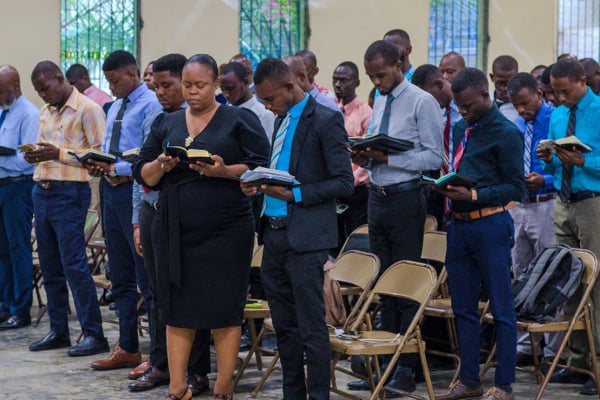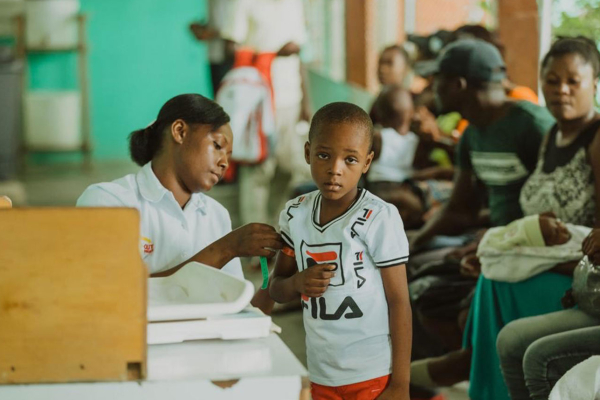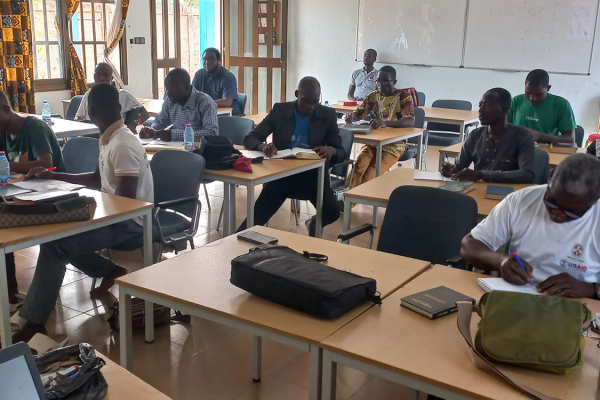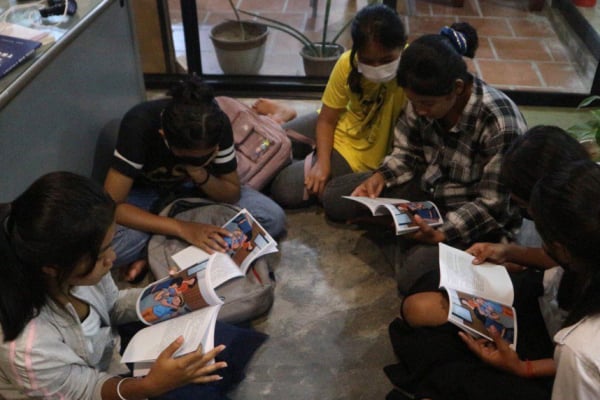
4 Misguided Expectations From Short-Term Missions
When I committed my life to missions at age 16, I wanted to conquer the world for Christ. Secular university and seminary studies nourished that dream as I invested myself in a community that taught me the importance of deep fellowship, sound theology, and consistent outreach.
I spent most of my summers on short-term mission trips — in refugee camps, remote villages, and large cities in lands as distant and distinct as India, Albania, France, and Ethiopia, to name a few. I was intense and that worked, because I had no family to care for, no daily life responsibilities to worry about, no household to manage. I loved everything and everyone, and I had all the time in the world for ministry.
When my husband and I joined Crossworld, I thought our life and ministry in Senegal would be every bit as thrilling as the summers I had spent overseas, but even better, because I’d be staying long term. It would be like one big, extended mission trip.
Except it wasn’t like that at all. It turns out short-term trips are nothing like long-term missions.
That doesn’t mean short-term trips are bad. They can be of great value, but they can also lead to misguided expectations.
If you’re like me, eager to conquer the world for Christ, I hope these four lessons I learned will help you avoid the same frustrations I faced when I was new to the field.
- Managing daily life takes energy.
As a short-term missionary, I received help from my host family who provided a place to live and food to eat. I didn’t have to worry about finding a plumber to take care of my home or a mechanic to fix my car. I rarely got sick, and when I did, my hosts made sure I received the best medical care.
I didn’t have a spouse and children to care for — I was responsible only for myself. I was paradoxically entirely dependent upon others (as others met my every physical need) and entirely independent at the same time (as I focused, unhindered and undistracted, on ministry).
When I arrived long term as a wife and mother, I was frustrated to realize that simply living — along with learning how to do basic tasks in a new culture — took the majority of my time and energy. - You need a sustainable lifestyle.
The austere conditions I lived in during short trips added to the adventure of it. I not only endured such conditions but thrived in them, and I had falsely believed my lifestyle would be much the same when I relocated overseas for good.
But sleeping on an inflatable mattress under a roof infested with predatory creatures isn’t sustainable for a family of four. We needed certain comforts for the sake of our well-being and longevity on the field. - Take time to transition.
On short stints, I jumped into active ministry the moment I arrived. But if we ran that quickly for the long haul, we’d burn ourselves out and cause harm to others in the process.
Long-term effectiveness requires learning the language, becoming part of the culture, and building trusted relationships — all of which take not months but years of investment. - Re-evaluate fruitfulness in ministry.
During my short-term mission trips ranging from 10 days to five months, I conducted kids’ camps, led women’s Bible studies, taught English as a second language, evangelized, and witnessed entire households put their faith in Christ. I expected a similar level of productivity and fruitfulness when I arrived long term.
What I discovered instead is that short-term trips are designed to cram as much ministry into as short a period as possible. What works for two weeks isn’t realistic long term. If I had stopped long enough to ask, any of the missionaries who hosted me could have told me this.
I’ve learned invaluable lessons on our missions journey that began in 2007, and we’re more effective disciple-makers today as a result.
If you sense the Lord leading you to missions, I hope these words will be a signpost for you of what may lie ahead — not to discourage you that the road will be bumpy, but to give you hope because you know what to expect.
When you face the same dissonance I did, know that it’s normal. Most of all, may the gospel of our risen Lord fill your heart and mind so that his grace, and not guilt, serve as your meditation day and night. Angie Velasquez Thornton served with her husband, Dan, and their two daughters in Senegal, Africa, for 10 years. They now live in Montreal, Canada, where she continues to make disciples with Crossworld. Read Angie’s blog.
Angie Velasquez Thornton served with her husband, Dan, and their two daughters in Senegal, Africa, for 10 years. They now live in Montreal, Canada, where she continues to make disciples with Crossworld. Read Angie’s blog.
.png)








